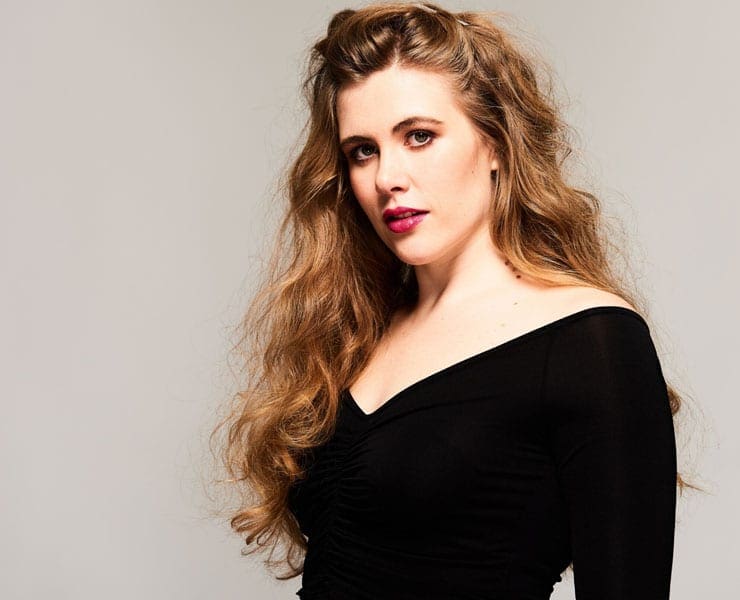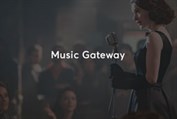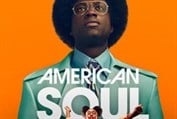Filmmakers – How To Get Your Music In Their Films
In 2018 the film industry was worth $136 billion. It’s a huge, global industry that spans countless genres, niches, fanbases and markets. Filmmakers have redefined storytelling since the dawn of cinema box office and they are always looking to produce films that stay with the audience long after viewing.
Music is one of the most emotive storytelling tools available to filmmakers and cinema is a world of opportunity for emerging artists. We’re going to examine the role of music in film and what a filmmaker looks for in terms of cinematic soundtracks.
Who Are Filmmakers?
This is an inclusive term as it comprises productions both big and small. A film director has creative control over the entirety of a film; they often develop the idea, develop concepts and screenplays, make casting decisions, hire production teams and costume designers, oversee shooting, visual effects and editing.
Producers oversee the more logistical, business elements of film pre production company however many producers also direct their films. Whether its a huge, major studio Hollywood blockbuster or a small independent film, there will also be a director/producer.
Filmmakers are passionate about their projects and each has a different style of direction. Some are very precise with their instructions with a clear idea of the final outcome and others prefer to let the other creative voices in the room speak up. A good director should be able to instil their vision for the film in each of their staff and cast so they collectively produce the best story possible.
Each director will have a different idea of the kind of music they’re looking for to accompany their visual sequence. Some storylines suit pre-existing tracks to play in the background at party scenes, some require a subtle musical score that invisibly adds to the dramatic atmosphere on screen. The film industry spans all sorts of genres and styles so no matter the stylistic identity of your music, there are opportunities for syncs.
When it comes to music in the film, either the filmmaker will have direct contact with musicians or composers, or they will hire a music supervisor to source the soundtrack. It’s most likely that for small scale productions you’ll work with the filmmaker directly, on larger budget and major film production company films a music supervisor will generally be the one you’ll be in contact with. Music is generally added in the final stage of the film production process; post-production house.
Funding and securing investment from film investment firms can be very difficult.
Sync Licensing
This is how music is legally added to visual media. Any filmmaker, large or small scale, must obtain the correct license and consent from an artist or composer to use their music in a film sequence. Sync licenses allow musicians to monetise the use of their music in a film.
Sync licensing can be a great source of income for emerging bands and sync fees can help you put money into furthering your career. As well as the financial benefits, it can be a valuable music promotion for artists and drastically increase their exposure. Films can project your music to new consumer demographics and can have an international reach.
In the modern age, sync licenses can encourage engagement across your digital touchpoints as an artist. If someone is watching a film at home, they might notice the soundtrack, Shazam the song to find its title and artist, from here they might go to your Spotify or Youtube channel to discover more of your music, which can lead to them purchasing your music or discovering your social media accounts.
There was a decline in the popularity of musical soundtracks when online retail services rose in popularity as consumers were able to purchase singular tracks instead of having to purchase an entire album. As we’ve entered into a golden era of TV and the film industry has produced some of the best-selling films of all time in recent years, soundtracks have once again become a source of hype surrounding new releases. The first Guardians of the Galaxy soundtrack received huge praise with the presence of some 70s and 80s classics on Peter’s ‘Awesome Mix Vol. 1’. Before the release of the second movie, director James Gunn previewed the soundtrack online and starred in a special feature in Rolling Stone, detailing the musical selection process for the film.
Sync licenses are agreed between filmmaker/music supervisors and the rights holders to a piece of music. Usually, a one-time sync fee is agreed and paid to the rights holders. Sync fees can vary depending on the presence of the song in the film and the reputation/popularity of the artist. An emerging indie band is going to be a lot cheaper in terms of sync fees than the latest Ariana Grande track. Once the song is synced in the film, the rights holders will then receive royalties for each time the track is ‘performed’ through the performing rights organisation they are registered with.
So not only can sync licenses generate immediate cash for artists and composers, but also continue generating income throughout the lifetime of the film. If you’re a relatively unknown band your sync fee won’t be particularly high, and if your music is licensed to an independent or low budget film you might not see one at all. It is good music promotion though, so if you’re trying to broaden your fan base it’s worth considering.
Syncs For Existing Tracks
As an artist, you may be approached by filmmakers looking to incorporate your music into their film, or you can approach them for a current project. As your music already exists, it’s up to you and the copyright holders (maybe a music publisher) and the filmmaker to agree on a sync fee and how your music will be used in the film. If you’re approached by a filmmaker whose vision and project you don’t want to be involved in, you can absolutely say no.
Even if the film is a small independent production and they can’t pay you a sync fee in advance, meaning your only revenue would come from sync royalties, it might still be worthwhile. You can’t put a price on music promotion and you have no idea who could stumble across it. Small, independent or short films are often shown at international film festivals so it’s worth considering.
Sometimes a filmmaker may want to sample your work and rework it or produce a cover version of your track. In these cases, the filmmaker must obtain a legal clearance from the copyright holders who can request to listen to the new version of the track before they grant permission. Sampling and covers work the same way as a normal sync license for a song; there can be a sync fee and royalties are still paid to the copyright holders for the reproduction of their track when it is purchased or ‘performed’.
When discussing sync fees with filmmakers it can be hard to know the worth of your song and every case is different. Licensing fees can depend upon the budget of the film, the reputation of the filmmaker, the commercial success of the song and it’s presence within the film. If you’re trying to get an idea of a fair price, ask any musical contacts you have that have signed sync licenses before to get an idea of their sync fee. You can always find information online and post on forums to inform your idea of your tracks worth. If you’re working with a music publisher, they can advise you on a respectable sync fee.
Compositions and Scores
Some filmmakers may want an entirely original musical score for their film, this can apply to the biggest of budgets and the smallest. In these cases, filmmakers will find a composer whose talents they feel will produce a score to align with their vision. Scores are usually composed in the post-production stage, once the film has been edited so that the music fits perfectly to the sequence.
For composers looking to start their careers and gain experience, there are always independent or student films looking for music. For small scale productions, you might not receive a lot of pay, (if any), but the experience is vital to progress your career. You must be flexible as a composer as the film can be edited again and sound editors may ask you to produce various parts again to mix more smoothly with the rest of the audio elements. As you do more films, with bigger budgets and growing commercial success, you can start to charge more for your services. As with any kind of freelance work, you must demonstrate your ability by starting small and work your way up.
In terms of royalties and getting paid, you may be asked only to write the score and then the filmmakers own musicians will record the finished score. In this case, you will own the compositional rights to the piece which can generate you royalties unless the filmmakers offer you a ‘Buyout deal’. You can also ask for a commission for writing the music, especially with bigger budget productions, but for smaller ones, this again may not be possible.
As we suggested for sync licenses for existing tracks if you’re starting your compositional career ask the advice of other composers in your network or online. Trade unions can help you understand the industry better and advise you on fair starting rates for your work as well as good practice and legal advice for contracts.
Finding Opportunities
This could potentially be the hardest element you will face in this process. There are opportunities out there but you need to know where to find them. The most successful method is usually to employ a music publisher. We’ve touched on them in this article already but we’ll now explain their role further.
When you want to release music, you’ll usually do so through a publisher. Some publishing agreements just cover the administrative elements of publishing and pay you your deserved royalties. These kinds of deals usually take a 10-20% cut of the publishing royalties in payment for their services. Other publishers, however, will promote your music and attempt to open up opportunities for you, such as sync licenses.
The benefit of employing a publisher in this way is that they have broad networks of filmmakers, production companies and music supervisors in their arsenal. Publishers are the first port of call for filmmakers and supervisors when looking to source music for projects because they have a catalogue of artists with tracks hoping to be synced. Publishers submit your music on your behalf, with your consent of course, and manage the licensing agreement. They take all of the legal elements off your hands and fight for you to get the best deal as it also benefits them. Publishers who offer these services often ask for a 50% share of the publishing rights for their services.
If you don’t want to go through a publisher and you’re an independent artist or a composer, you can seek out opportunities for yourself. Online community pages and forums can be a great place to look for work and you can access global opportunities. You also need to start networking with people in the entertainment industry. The best way to find someone to work with is to think of your friends and connections first. Start going to industry events and networking with a mix of different professionals, even if you meet someone whose career doesn’t align with yours, they may recommend you to a friend. Everyone wants to work with people they get on with, by making good impressions and putting yourself forward, speaking confidently about your work, you can either land a job or lose it.
Make yourself easy to find online. Engage with fans and the entertainment industry through social media, forums, unions, community pages and have a good website where filmmakers can find you. Ensure all your information is up to date and most importantly include your contact information.
Alternatively, you can also contact filmmakers and put yourself forward via email without an in-person introduction. If there’s a filmmaker you admire and you’ve found they’re working on a new project, find their contact details and send them your music for consideration. Contact details can usually be found on a filmmakers website or through the website of their video production company.
This practice won’t always be successful and you should consider the reputation and station of who you’re contacting. For example, if you’re a small band only making waves in your hometown, then you’re probably not going to be chosen for Christopher Nolan’s latest project. Manage your expectations but by all means, aim high.
How To Pitch
When pitching your services or your music to filmmakers, there are a few things you can do to increase your chances of success. First, be human, polite and genuine; filmmakers are people just as you are and while you need to be professional, good manners and authenticity can go a long way. You can complement them by saying how much you admire their work, but don’t waste paragraphs on it because they likely won’t have time to read it.
When putting forward your music, it’s preferred to send links to Spotify, Soundcloud or your website where they can easily listen to it without downloading it themselves. This means they’re not removing tracks from their computer if you’re not successful or waiting a long time to download it. Make it as easy for them as possible to access your music.
If you’re sending them finished tracks for consideration, make sure they are of high quality and complete with all the necessary metadata. The filmmaker does not have time for you to re-record a demo into a finished track and it also says something about your level of professionalism. Only send work that’s polished.
Focus your pitching, don’t send a hundred identical emails to filmmakers that are generic and putting your music forward for projects it’s not appropriate for because it simply won’t get used. It wastes people’s time, wastes your time and it’s clear to see when an email has been sent to multiple recipients. It will turn people off and you simply won’t be successful.
Make Connections and Keep Them
This industry really can be about who you know, so it’s vital to make and maintain key connects throughout your career. If you work on a project with a filmmaker and they’re happy with your work, they’re likely to hire you again or recommend you to others. As your career takes off and theirs does too, it’s good practice to stay in contact as their success can also have a ripple effect on yours.
You especially don’t want to receive a bad reference off someone and it affects any potential opportunities in the future. Poor networking can be one of the biggest downfalls people face so it’s vital that you make connections and stay in contact, even if it’s just an email or meeting for a coffee once every six months.
If you’re a filmmaker looking for music for a project, or a musician/composer interested in sync licensing opportunities, check out our services or our Global Creative Marketplace to see what projects are currently available.
FAQ Section
Q1: How much are music royalties for TV shows?
A network TV usage might pay in the $1000 – $2000 range for one broadcast. You make new royalties every time the show is rerun, which is particularly good news if you’ve got music on a show that goes into syndication and airs frequently in markets around the world.
Q2: How much do commercials pay to use a song?
The fees paid by advertising agencies and their clients for commercials can be substantial (from $125,000 to more than $1,000,000 per year for successful songs), depending on whether, among other things (a) the commercial is for radio, TV or the Internet, (b) it is targeted for a national or limited-territory campaign, …
Q3: How much do jingle singers get paid?
Artists who don’t have a full-time job as jingle writers typically charge per jingle. According to the 2011-2012 film and television music salary and rate survey, jingle writers sell their work for about $10,000 per jingle to local or regional markets.
Q4: How much do TV royalties pay?
The show’s success still pays dividends for the cast. In 2015, USA Today reported that Warner Bros. earns $1 billion a year from “Friends.” Of that amount, 2 per cent — or $20 million — go to each of the stars every single year.
Q5: How do I become a member of ASCAP?
Steps you can take to make the most of your ASCAP membership.
- Activate Your Member Access Account. …
- Sign Up for Direct Deposit. …
- Join ASCAP As a Writer and Publisher Member. …
- Register Your Music. …
- Download Your ASCAP Mobile Pass. …
- Connect with Us and Stay Informed! …
- Attend the ASCAP “I Create Music” EXPO.
Q6: How much does it cost to join BMI as a songwriter?
Membership is free for songwriters. For publishers, there’s a $150 fee for individuals and $250 for companies.
Q7: How do you get a sample cleared?
Start by researching the artist and track you plan to sample. Start with the major rights organizations such as ASCAP, BMI, EMI or SESAC. Go to the repertoire and search the title or artist name, revealing the track title, performer, and the songwriter(s), as well as the publisher names.
Q8: Who picks movie songs?
Music director for movies are business management professional who selects the music used in movies, also called music supervisors. They oversee the composer and other musicians involved in creating music for a movie. Music directors who work on films create the atmosphere of a movie through the soundtrack selection.
Q9: How do you submit music to music supervisors?
Tips on Pitching Your Songs to Music Supervisors
- Send download links. yousendit.com, box.net, etc.
- Send high-quality MP3 files. Don’t send WAV or AIFF files. …
- Be selective in the music you send. Nobody has time to sift through 40 random music options. …
- Make sure your meta-data is properly filled out. …
- Don’t expect feedback / Be judicious about following up.
Q10: How many seconds of music can you use legally?
You may have heard of “fair use,” a copyright provision that permits you to use 10,15 or 30 seconds of music without copyright obligation. That is, you understand that you can use a short section of a song without paying a fee. Yet, you’re wondering how exactly this works























